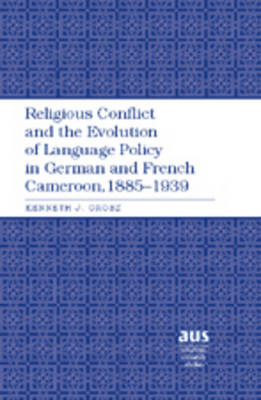American University Studies
1 primary work
Book 203
The book was awarded the Alf Andrew Heggoy Book Prize in French Colonial History, 2009.
This groundbreaking comparative study examines how church-state conflicts shaped the evolution of German and French language policy in Cameroon from the dawn of the colonial era to the onset of WWII. Despite lingering anti-Catholic sentiments generated by Germany’s Kulturkampf and early twentieth-century French anti-clerical legislation, in Cameroon these conflicts created a curious inversion in which Protestant, rather than Catholic, missions were portrayed as obstructionist and unpatriotic due to their preference for using indigenous languages in educational and evangelical work. Inside French Cameroon this situation suddenly and dramatically reversed itself during the mid-1920s as the Catholics rethought their commitment to spreading French in the colonies. The result was repeated clashes between colonial authorities and mission personnel right up to the outbreak of war in 1939.
This groundbreaking comparative study examines how church-state conflicts shaped the evolution of German and French language policy in Cameroon from the dawn of the colonial era to the onset of WWII. Despite lingering anti-Catholic sentiments generated by Germany’s Kulturkampf and early twentieth-century French anti-clerical legislation, in Cameroon these conflicts created a curious inversion in which Protestant, rather than Catholic, missions were portrayed as obstructionist and unpatriotic due to their preference for using indigenous languages in educational and evangelical work. Inside French Cameroon this situation suddenly and dramatically reversed itself during the mid-1920s as the Catholics rethought their commitment to spreading French in the colonies. The result was repeated clashes between colonial authorities and mission personnel right up to the outbreak of war in 1939.
